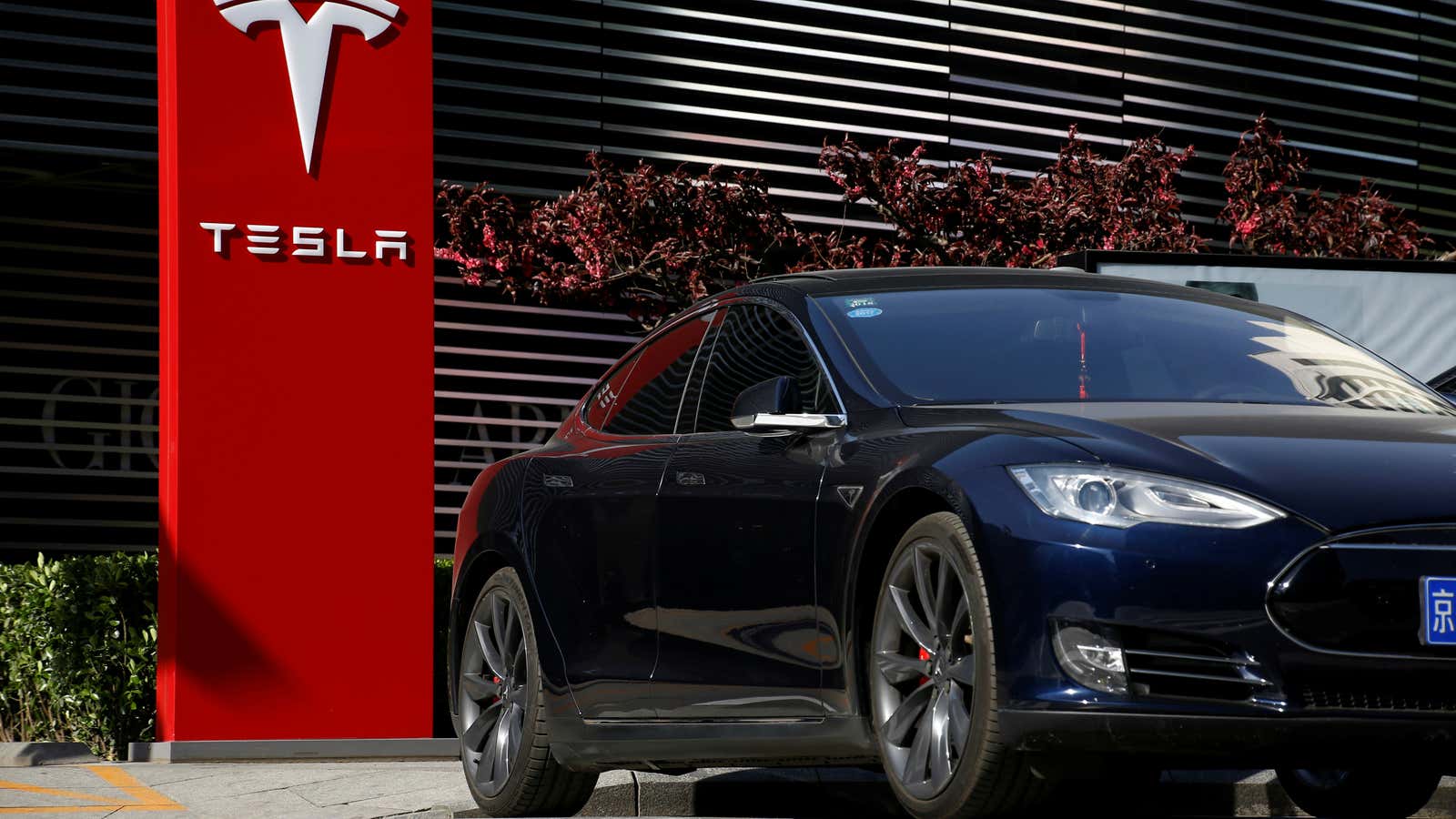Tesla has set up a wholly-owned subsidiary in Shanghai, marking the latest step in the company’s steady march toward setting up a factory inside China, the world’s biggest market for electric cars.
According to Chinese finance media outlet Yicai (link in Chinese), a May 10 registration for a company named Tesla Shanghai Co. Ltd with capital of 100 million yuan ($15.8 million) surfaced this week in a database of nationwide company information. Xiaotong Zhu, Tesla’s China head, is listed as the company’s legal representative of the company, which is a wholly-owned subsidiary of Tesla’s Hong Kong company. Tesla declined to comment on the registration.
The new company’s status as a wholly-owned subsidiary is a rarity in China. The registration comes after China in April, amid a worsening trade spat with the US, suddenly announced it would relax rules that require foreign car manufacturers to go into business with local partners in order to make cars in China. The changes first apply to electric cars. The announcement looked set to most immediately benefit Tesla, as many other major car manufacturers already operate in China with local partners. Musk referenced the change in an earnings call earlier this month, and expressed appreciation to the Chinese government.
The China subsidiary has been long in the making but was held up over the partnership issue. Forgoing the partnership route, Tesla was instead selling its vehicles in China as imports, stamped with a 25% tariff, making them substantially more expensive than they are in the US and elsewhere. Musk had complained about the import taxes, tweeting to Donald Trump that the current system makes competing in China like “competing in an Olympic race wearing lead shoes.”
China is crucial to Tesla. The company currently has just a 3% share of China’s market for battery-powered EVs, according to Bloomberg, but the country is still its second-largest source of revenues. It will likely would do far better if its cars were more competitively priced. Boosted by subsidies, the country outpaces the US both in new electric car sales, and its total stock of electric cars. In the first quarter of the year, China saw sales of nearly a quarter of a million electric cars.
Operating independently in China will also put Tesla in a better position to protect its intellectual property—foreign automakers that have formed partnerships in China worry that critical technology will leak to their partner (paywall). It will also let Tesla keep all of the profits it reaps from its sales. However, it will have to set up its local supply chain (paywall) and finance its China operations entirely by itself, while joint-ventures can often count on funding from their partner.
